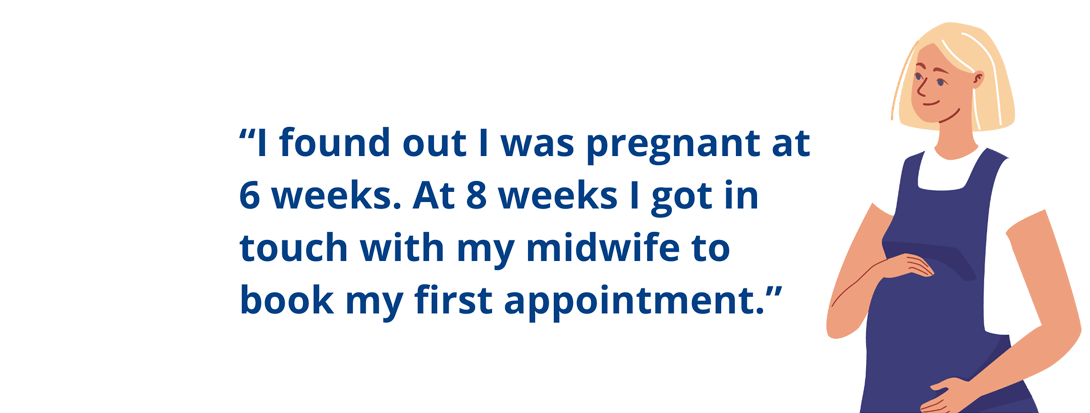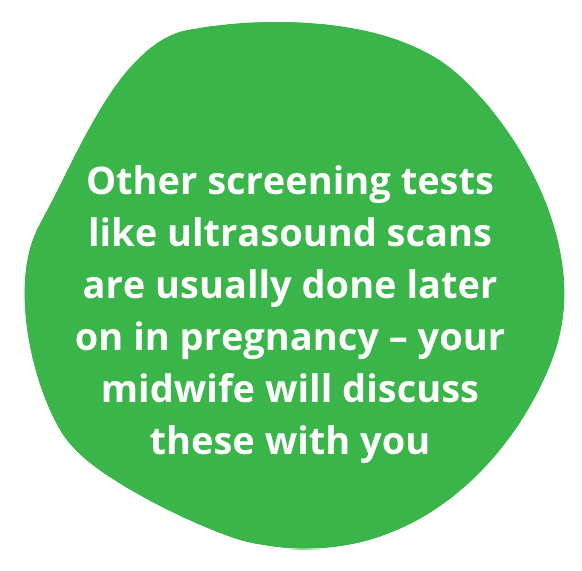All pregnant women are offered screening tests to check on their health, and their baby’s health. These tests are usually carried out by a midwife.
Some screening tests should ideally be done before a woman reaches 10 weeks of pregnancy. This is because further tests may be needed, and decisions made about ongoing care.
So as soon as you know you’re pregnant, please contact your local midwife service and book your first appointment with them.


